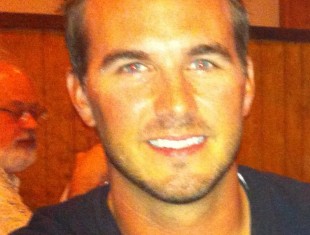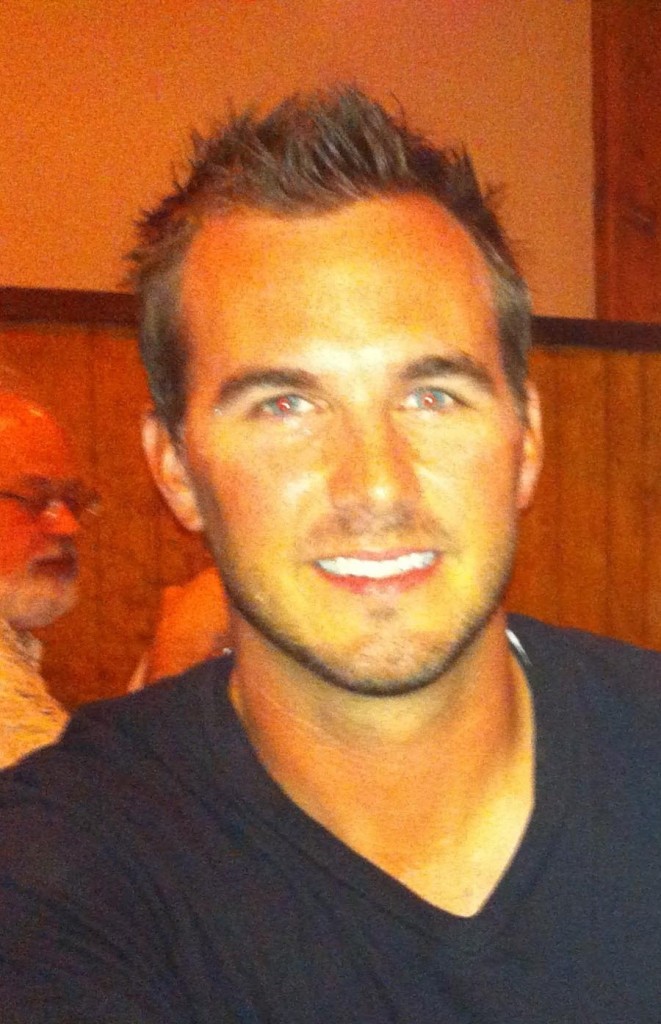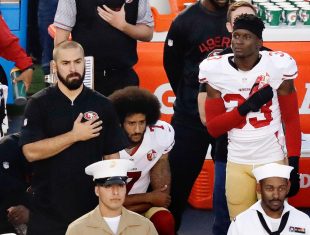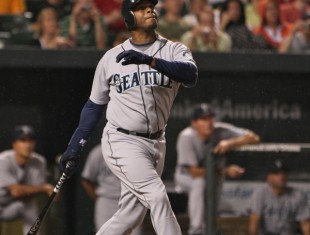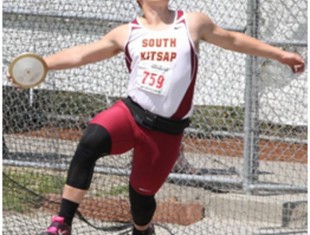Travis Vetters
By Terry Mosher
Editor, Sports Paper
Part II of II
Travis Vetters graduated from South Kitsap in 2002, played baseball four years at the University of Portland and then was picked up by the Los Angles Dodgers as a free agent in 2006 and played four years in the organization.
In his fourth season, Vetters made the Great Lake Loons of Midland, Michigan in the Midwest League out of spring training in 2009 and was starting to get in a groove when the end came into sight. He had struck out three straight times in a game, but in his fourth at-bat he tripled to the right-center gap. As he slid into third, he felt his shoulder pop out again.
He was rehabbing in Arizona and playing on the Dodgers’ team there when it all came to an end. He started a game at first base and on a pickoff play went to make the tag and his shoulder again popped out.
Vetters ended up having another surgery. He worked to get back in baseball shape and was ready to go back to spring training when the Dodgers asked him if he would become a coach in winter ball in the Dominican League. He said he would consider it, but instead hooked on with the Lake Erie Crushers, a team in Avon, Ohio that played in the independent Frontier League.
Even though Vetters enjoyed playing, some of the passion he had for the sport was missing. He held several conversations with his coach and finally after playing 49 games he decided that was it.
“I think everybody in baseball gets to this point,” says Vetters. “It was just taxing on me mentally. I became not to care if we won or lost. I played hard every day, but there was a mental daze I found myself in. I knew it was time to hang it up. I still loved the game, but my dad always told me the day you stop getting butterflies when you show up on the field is the day you need to stop playing.
“My dad taught me how to play, as did my coaches, and they taught me to respect the game and give it 100 percent every day or you shouldn’t be in it because you are holding back somebody else or holding back your team.”
So he quit.
“I was at peace with it, “ he says.
His parents were now living on a 250-acre Llama farm in Kettle Falls north of Spokane and he went there. For several weeks he would take his mother to work in the morning, work on the farm, and then go pick her up from work.
Vetters said those weeks were an eye-opener. He was experiencing what many pro athletes do after spending years playing a sport; they suddenly find themselves back in the real world with no schedule to meet, no training to do to stay in shape.
“When I played I was driven (to succeed),” he says. “You just got to grind it out in the minor leagues. There is more to it than just baseball grind. There is the physical grind, the mental grind, and financial grind because you are not making any money.
“The interesting thing for me is I felt like I had a five-year sabbatical from life. A lot of friends after college had gotten a job bought a house, gotten married. I was gone nine months of the year and then I had to work out and condition my body to be ready to play at a higher level. And you have to work to just make rent money. Then you are gone (again) for the rest of the baseball season.
“When I came back I was five years behind my friends, in a sense.”
When the reality of being back in the real world hit him one day he decided he needed to get on with his life, so he packed up and headed back to Portland.
Vetters had become friends with a businessman that was close to the University of Portland baseball program (Vetters gave hitting lessons to his son). This friend told Vetters if he ever needed a job once his baseball career was over with to give him a call. So he did.
He started out on the bottom floor of the Advance Medal & Wire Products business as a shop floor worker sweeping up and when he got the hang of things was promoted, eventually becoming a program design engineer and heading the safety department.
“We did a lot of work on the Trade Center in New York for towers one and four,” says Vetters.
He was there for two years when a friend that worked at Nike told him the Beaverton, Oregon company had a job opening. The job description fit Vetters like a glove, pardon the pun.
“The position called for somebody with experience with an engineering manufacturing company (check) and professional baseball experience (also check).
“It had just opened up and I applied for it and went through the whole interview process ‑ three phone interviews ‑ and finally I went in for the panel interview. I was the last person to interview and I went right from work. I had to stop at a little restaurant to clean up in a little birdbath sink.
“Then I went in for the interview and walked out like I just knew I had the job. I felt so good about the interview. We (the panel) connected very well. The next day I got a phone call at work from my (current) boss saying I got the job.”
As part of his new job, Vetters has met and talked with MLB players like Carlos Gonzalez, Mike Trout, Matt Kemp, Mariano Rivera, Andrew McCutchen and many others..
“My job is to create all their custom gloves,” says Vetters. “I get all the information they want in a glove and we customize them any way they want from colors to leather and to fit”
Representatives from major equipment companies like Nike are a major presence in baseball clubhouse throughout MLB, so this is not new territory. However, Nike, which has come to this party later than Rawlings, Mizuno, Wilson, Louisville and others, does it well and sends its representatives in groups.
Vetters says he’s not alone when they travel to meet with players, including at spring training. When the Mariners are home he visits in the clubhouse just to make sure everything is ok.
It’s a job that is right up his alley.
“Just talking baseball, that is what this job is for me,” says Vetters. “It’s one of my passions – baseball and engineering, all in one. Nike gives you the opportunity you never thought you would have.
“ Honestly, it’s amazing. I have to pinch myself almost daily. I (always) look at my phone to see who is texting me. Just the other day I got a phone call from Mariano Rivera. I said, ‘What is up Mo? What can I do for you?’ They (the Yankees) had just gotten beat by the Dodgers so I had to give him a bunch of crap about that.”
Vetters spent nine days in Florida this spring visiting baseball teams. The first person he paid his respects to in the Yankee clubhouse was Rivera.
“Mo has been kind of the godfather of the Nike gloves,” says Vetters. “He wears the old-scho9l Cooperstown Cleats, and I believe they only make it for him. It’s one of the oldest models.
“People ask me who is the worse player you have had to deal with, and I say none. It’s just a group of people who are baseball guys. Everybody is a normal dude, who just happen to be good at something.”
From August 12-19 Vetters was in Japan with his Nike Group. They spent three days in Tokyo at Nike headquarters and then he went to Koshien, which is the Japanese High School baseball tournament, which a CNN story described as the most emotional sports tournament in the world.
Japanese kids live and die baseball, which is probably the main reason Japan has won nine Little League championships, including three of the last four.
Vetters actually put on a baseball uniform and participated for three days in the grueling 11-hour practice drills these young Japanese high school baseball players go through. They went from 7:30 in the morning until 6:30 at night, and all of it was on dirt fields.
“There are 72 kids on each team and every kid has a job, which includes hand scrubbing every baseball. There is no jogging, no stopping, and no half-assing something, not even close to that. Everything was done to perfection, and at the game time it was 96 degrees and 100 percent humidity, and they were in full uniform.
“For coaches, it was something to experience for that long. I was more mentally exhausted than I was physically at the end of each day. So it was breathtaking and the most beautiful thing I have ever seen. It was the purest baseball I have ever seen as a player or coach, just to see these kids with the up-most respect for each other, their coaches and their equipment.
“They all take off their shoes before entering clubhouse. They have no agendas. Their 100 percent focus is executing and playing baseball, or hand scrubbing helmets with soap and water and learning baseball.
“And they are all having fun. I noted not one kid complained, not one kid was disrespectful.”
Koshien is played as a spring tournament and a summer tournament.
“We got to watch some of the summer games,” Vetters said. “There is, I believe, 4700 high schools in Japan, and the top 50 go to the Koshien. It’s single elimination and the team that wins it is perfect.
“So I got to experience and see it. They play in front of 50,000-plus fans (850,000 watched the summer tournament last year). It’s the most amazing thing I have ever seen, to this day in my life.”
The experience has led Vetters to vow to be better in everything, including his job, his role as son, brother, coach. He wants to be the best possible, and is willing to make the sacrifice and put in the time and effort and discipline to make it happen.
A week ago he left for the East Coast to visit NCCA Schools Miami, North Carolina, Duke and then flew into Austin, Texas to visit the University of Texas.
Sometime this month he will go with another Nike group to Asia for two weeks, visiting Nike factories to introduce himself and to see how the company’s equipment is built and whether he can add something that will make the manufacturing process better.
“I’m just going to keep working hard,” says Vetters. “This is not real work. If you love what you do it’s not work. I get to talk to baseball players almost on a daily basis. I get to fly all over the world and experience things that nobody has experienced.
“It is a humbling experience. It’s been a trip, no pun intended, since I have been here. You learn as you go and just go after everything hard.”

